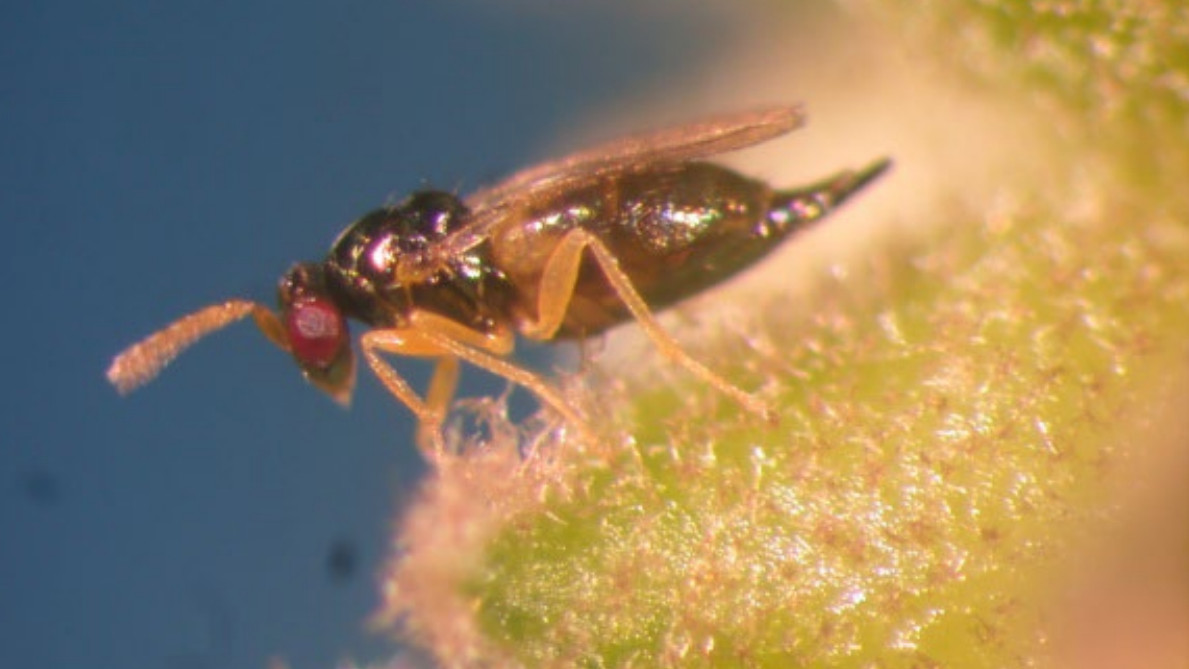(BIVN) – A Final Environmental Assessment with a Finding of No Significant Impact has been published, detailing a proposal to release a small wasp to target another wasp that is killing treasured wiliwili trees in Hawaiʻi.
The Hawaiʻi Department of Agriculture, with the support of the Hawaiʻi DLNR and the University of Hawaiʻi, plans to release Aprostocetus nitens, a host specific natural enemy of the erythrina gall wasp, Quadrastichus erythrinae. From the Final EA:
Erythrina gall wasp (Quadrastichus erythrinae) was first detected in Hawai‘i on the island of O‘ahu in 2005. This non-native species quickly spread to Erythrina species throughout the state, including wiliwili (Erythrina sandwicensis), a highly valued dominant species of Hawai‘i’s lowland dry forests. The invasion of Hawai‘i by Erythrina gall wasp has resulted in the defoliation and mortality of thousands of Erythrina trees throughout the state, and it was not until the approval and release in 2008 of Eurytoma erythrinae Gates & Delvare, 2008 (Hymenoptera: Eurytomidae), a wasp parasitoid of Erythrina gall wasp, that wiliwili populations began to show signs of recovery. Ongoing monitoring of wiliwili has shown that inflorescences and seed pods are still being heavily impacted by the Erythrina gall wasp. A potential second biocontrol agent, Aprostocetus nitens, has been studied as a complementary biocontrol to E. erythrinae, and it is hoped that this species will further reduce the gall wasp’s negative impacts.
Scientists say extensive experiments show A. nitens and E. erythrinae “have different feeding preferences, controlling the gall wasp on different parts of the plant.”
“A. nitens showed no preference for any of the non-target species presented,” the document states. “No negative impacts on cultural values are anticipated from the release of this parasitoid on the human environment in Hawai‘i, but instead would lead to positive impacts by reducing the damage from the Erythrina gall wasp to our culturally important native wiliwili. The proposed release of this Erythrina gall wasp biocontrol agent will not have any undesirable, negative, nontarget effects on the natural environment of the Hawaiian Islands. All comments received during the Draft Environmental Assessment period were in support of the project. Therefore, the determination from this Final Environmental Assessment is a Finding of No Significant Impact (FONSI).”


by Big Island Video News10:49 pm
on at
STORY SUMMARY
HAWAIʻI - A second biocontrol will be released to further reduce the damage to wiliwili trees caused by the invasive erythrina gall wasp.